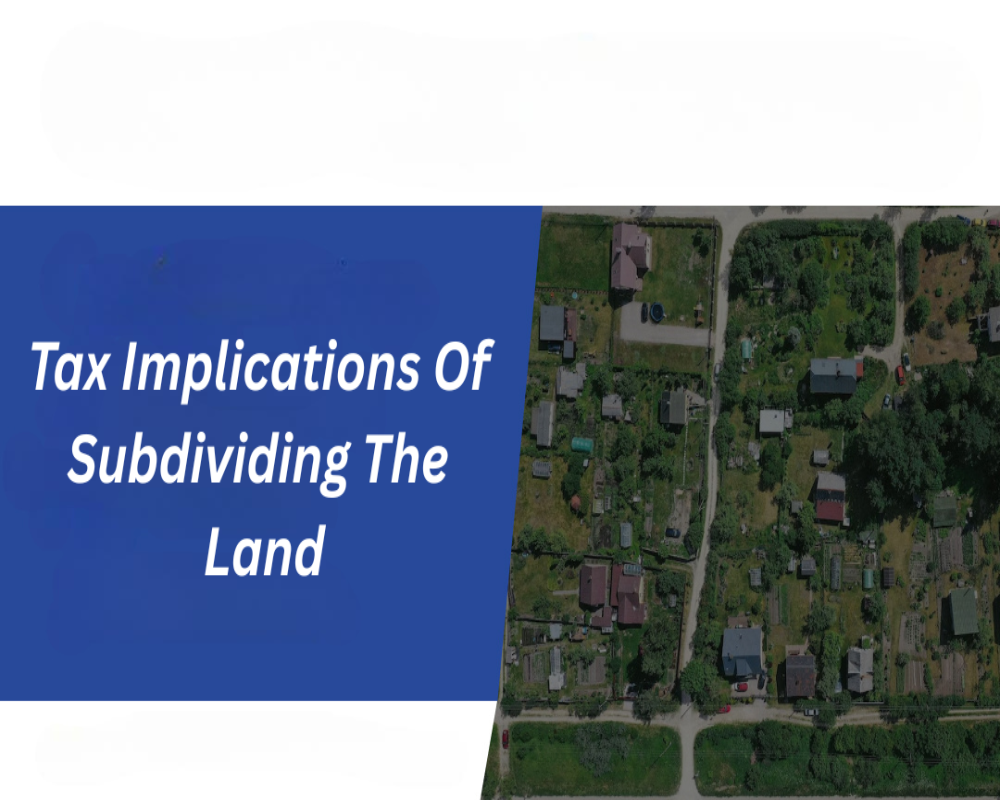Triggers Potential Capital Gains and Property Tax Reassessment
Subdividing land can lead to capital gains tax implications if any portion is sold after subdivision, especially if the value increases post-split. Additionally, each newly created parcel may be individually reassessed for property tax purposes.
- Selling a subdivided parcel may trigger short- or long-term capital gains taxes
- The assessor may assign new assessed values based on market rates for smaller lots
- Property taxes typically increase due to higher land utility or improved marketability
May Result in New Tax Parcel Numbers and Billing Structures
Once land is subdivided and approved by the local jurisdiction, it is assigned new parcel identification numbers, and each lot becomes independently taxable. This changes how taxes are assessed, billed, and paid.
- Each parcel will receive a separate property tax bill
- Tax rates remain consistent, but values per parcel are often higher than the total original tract
- Owners must ensure timely tax payments on each parcel to avoid penalties
Can Affect Eligibility for Exemptions or Deferred Tax Programs
If the original land qualified for any tax exemptions or was enrolled in a deferred tax program (e.g., agricultural or conservation use), subdivision may revoke these benefits. This can result in rollback taxes or loss of tax savings.
- Agricultural or timber exemptions may be voided on subdivided lots
- Deferred tax agreements often require continued qualifying use over time
- Local tax authorities may assess recapture penalties for premature subdivision


